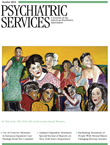In her most recent book, the sociobiologist Sarah Blaffer Hrdy returns to a familiar topic: cooperative breeding, or the shared task of raising children, and its implications for human evolution. Hrdy is arguably the leading biological anthropologist of the day in the field of motherhood. As a graduate student in the 1970s, she studied infanticide among langurs, a small primate native to India. In past works she has analyzed the sexual proclivities of modern women ( The Woman That Never Evolved, 1981) and challenged the so-called maternal instinct in evolutionary context ( Mother Nature, 2000). Now in Mothers and Others, she focuses on how humans developed alloparenting behaviors and emotional identification with others during the Pleistocene Era, while other great apes did not.
With the premise that "the capacity to be far more interested in and responsive to others' mental states was the critical trait that emerged and set the ancestors of humans apart from other nonhuman apes," Hrdy asks, "Why us and not them?" That is, how and why did only our species out of all apes develop the unique cognitive and empathic traits that characterize "emotionally modern humans"?
Her answer is this ambitious book. Aimed at both lay and specialist audiences, Hrdy's writing will appeal to mental health professionals interested in attachment theory, mirror neurons, and the role of grandmothers in childrearing. In less than 300 pages, she weaves together studies from developmental psychology, neuroscience, psychiatry, behavioral ecology, and social anthropology. For example, Hrdy disputes a prevailing notion emphasized by John Bowlby, that continuous skin-to-skin contact between mothers and their infants, as observed among baboons and gorillas, is the defining model for how our African savanna-dwelling ancestors must have cared for their young. In fact, the author writes, about half of contemporary primates rely on shared care and use continuous-contact mothering only as a last resort, when no safe alternatives are available. In other words, placing a child in day care, hiring a babysitter, or asking one's mother-in-law to watch the baby echoes an old practice among primates.
In the last chapter, Hrdy notes that shared care is becoming less common among humans; more single parents raise children solo, and parents increasingly live far away from family members who could provide extra help. She suggests that if we evolve in a direction without cooperative breeding, we may lose the very trait that makes us human—the ability to empathize and solicit care, the neuronal networks that enable theory of mind.
Although compelling, Mothers and Others is not without fault. Hrdy is so adamant to prove her point that she tends to skim over criticisms of her arguments or weak links. In her eagerness to support her theory for how humans developed into cooperative breeders with a long maturation period and big brains, she often conjectures based on circumstantial evidence. But as a whole, Hrdy's newest work is wonderfully readable and thought provoking. After finishing Mothers and Others, one finds it hard to resist reading her other books as well.
The reviewer reports no competing interests.

